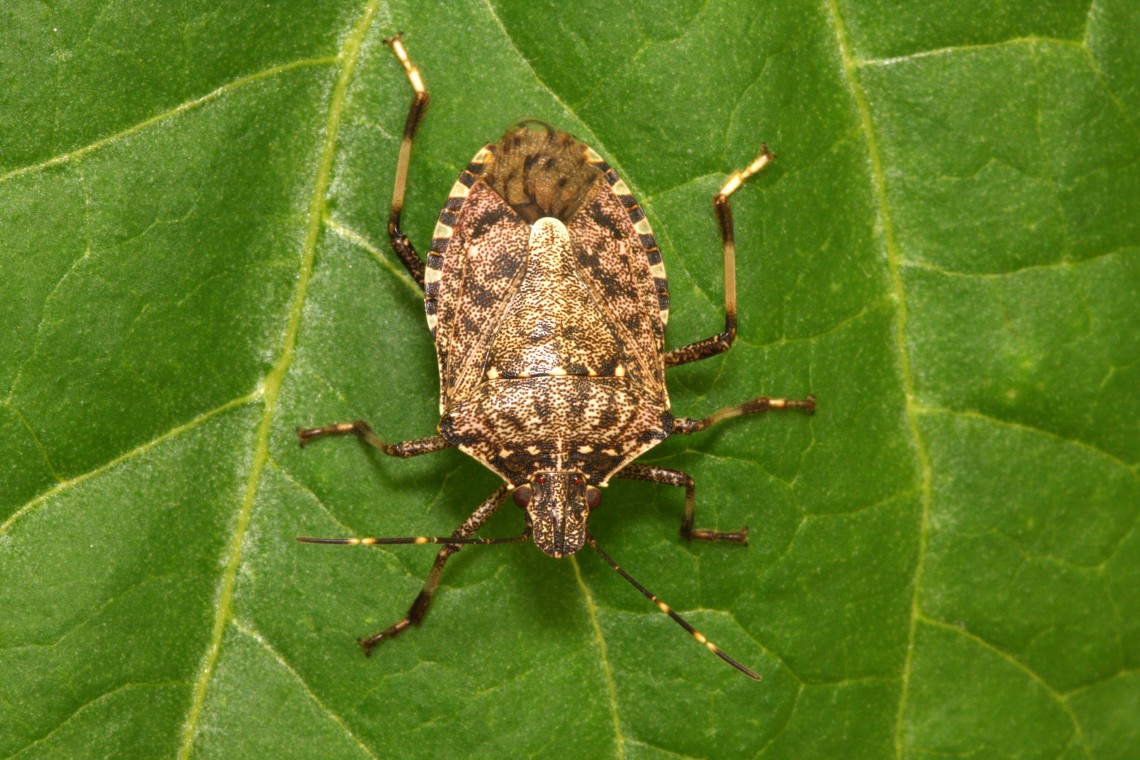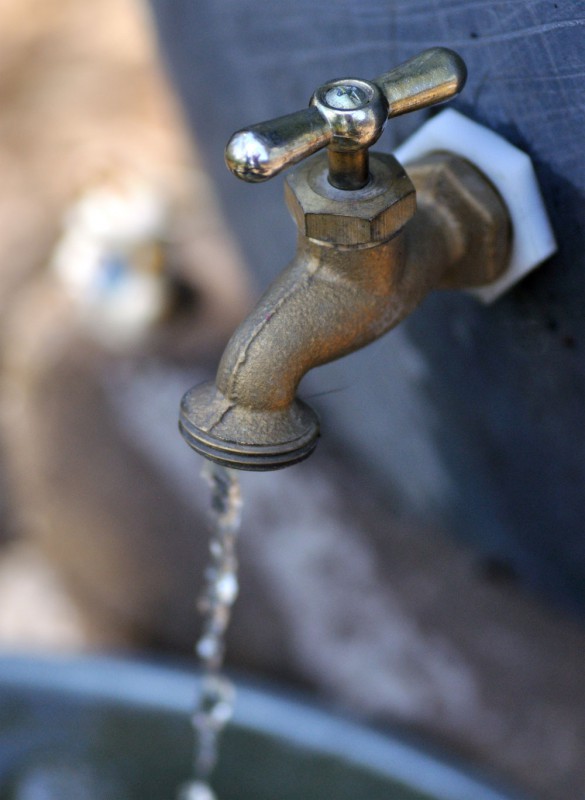What’s Bugging You?
Rodents, mosquitoes, ticks, and other insects are not what you want living in your yard. These critters can bite and sting, and some are poisonous or carry diseases. To deter and eliminate these unwanted visitors, people use chemicals called pesticides.
Many of these products contain chemicals that the Environmental Protection Agency evaluates for health risks. Unfortunately, what’s toxic to pests can also be harmful to humans and the environment.
Pets and kids playing on your lawn can be exposed to harsh chemicals and become sick, and pesticides can wash off your yard into local waterways, killing aquatic life. So remember to always follow directions on the container, and never apply “blanket” applications across your yard. Use pesticides only if necessary, clean up spills, and never use them within 20 feet of a stream or creek.

Stink bugs can invade your home and garden, but consider alternatives to environmentally-harmful pesticides!
Not all of the insects in your yard should be bugging you. Identify pests by bringing a sample to your local garden center or researching on the web before trying to eliminate them. Many insects are an important part of a healthy yard, whether they help to pollinate wildflowers or even control harmful pests. Insects such as ladybugs, honeybees, dragonflies, praying mantis, and even some spiders are all good to have around.
To encourage more beneficial bugs, plant conservation landscaping like a pollinator garden. Non-native plants like Japanese barberry can house infectious insects like ticks. However, native plants such as butterfly-weed attract wildlife and are adapted to pests in the area, so you’ll need less pesticides. You can also incorporate insect-repellent plants such as citronella (the oil is used in the candles), marigolds, lemongrass, or basil.
Even better, you can step away from the spray! Common household items can be repurposed as natural pest repellents.
- Use garlic, apple cider vinegar, cedar or cooking oil as all-purpose alternatives to conventional pesticides.
- Neem oil is a natural plant-based pesticide.
- Crushed parsley leaves will deter mosquitoes, and eucalyptus oil helps you say goodbye to flies.
- To keep snails and slugs at bay, spread copper around the base of plants (some pennies will do in a pinch!) or use sand or crushed eggshells.
- A shallow pan of beer will also lure slugs to slither away from plants.
- To prevent worms from eating your plants, lightly sprinkle some flour.
- To attack ants, spray them with soapy water, or place cayenne pepper along their entry area.
- To keep stinkbugs out of your yard, dust areas with cinnamon powder.
For more information, visit:
Weed killers may go from plant to pooch (via Student Science)
Chemical Contaminants (via Chesapeake Bay Program)
Don’t Dump into Storm Drains (via Alliance for the Chesapeake Bay)
Lawn and Garden Care (via Alliance for the Chesapeake Bay)
Organic Gardening & Pesticide Alternatives (via HGTV)
Pests in the Garden (via HGTV)
Lawn Insect Management (via sodgod.com)
Some Natural Pesticide Alternatives (via Sonora Environmental Research Institute, Inc.)
